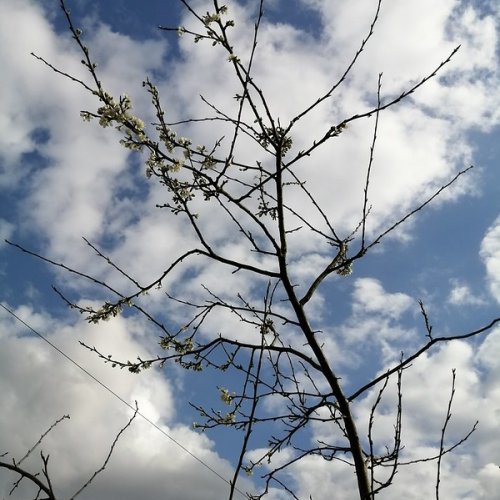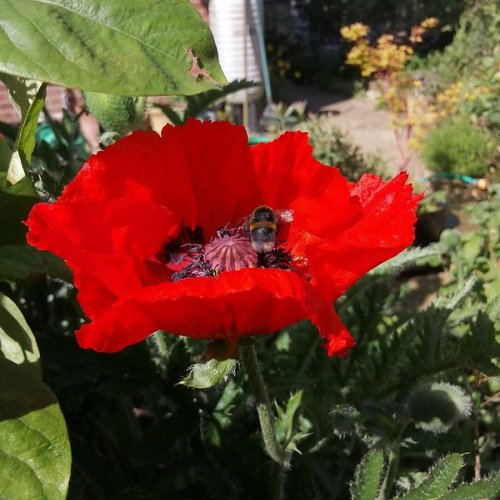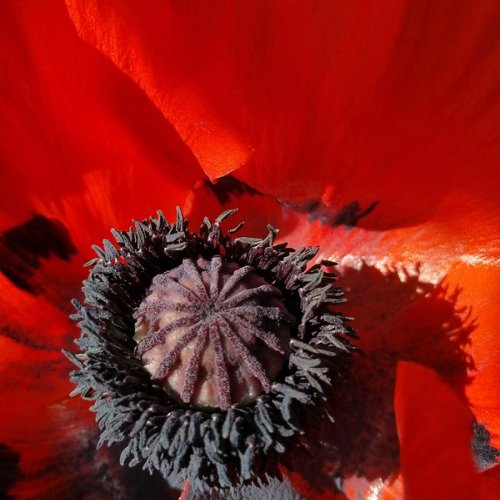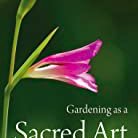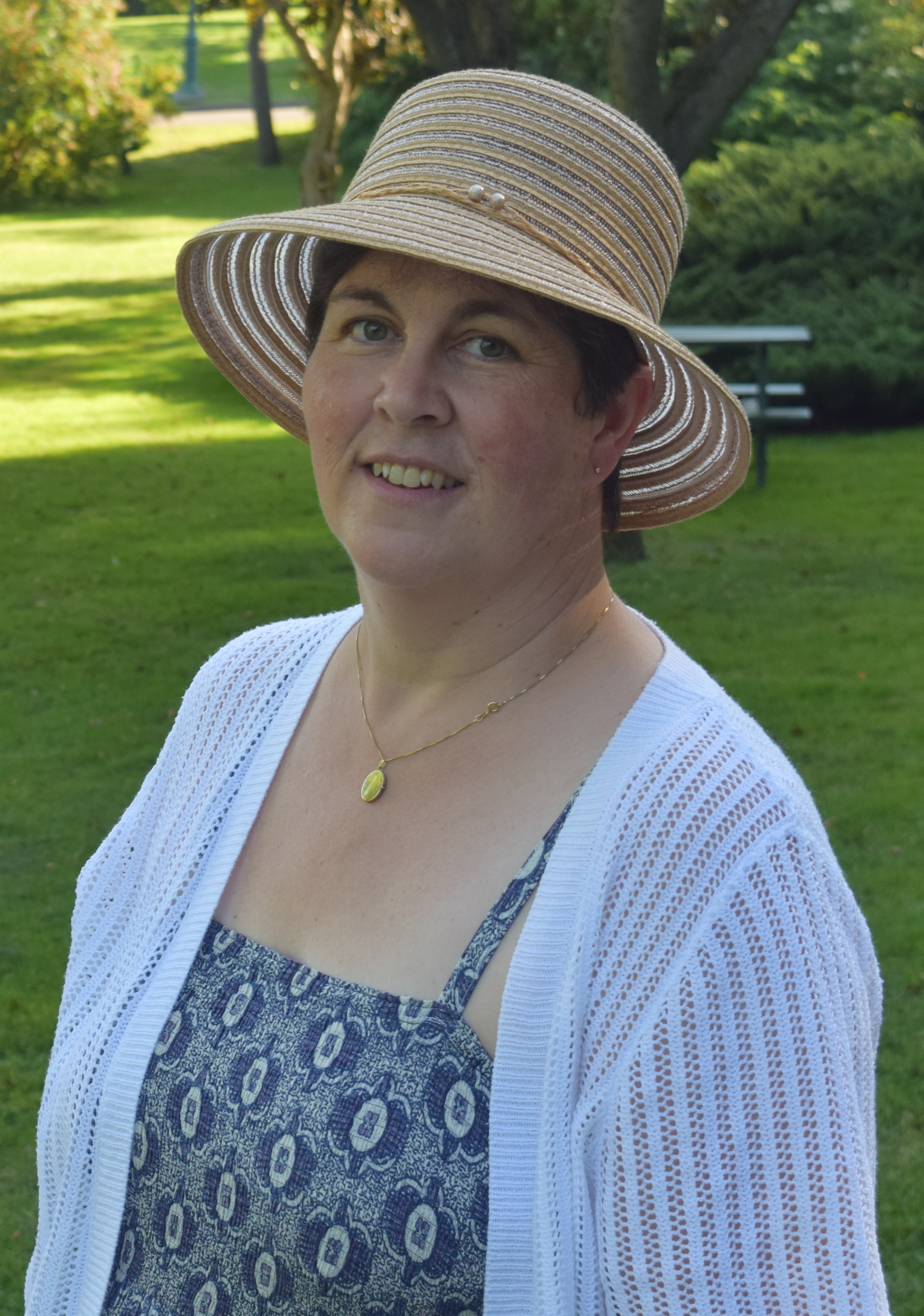There is something about working in a garden that does strange things to the sense of one’s place in the world. I lie back and look up through the dancing branches of my plum tree into the vast blue sky and feel infinitely small and insignificant. Like the psalmist I ask, ‘What am I that the Creator should even notice me?’ And then I look at the tiny intricacies of a flower that I have sown and marvel at what my Creator, this seed and I have brought about together; I feel at once powerful and humbled.
At this time of such turmoil and contradiction, it is no accident that I feel such a deep-seated need to be outside, away from the pull of social media and headlines which show an apocalyptic world of flames, violence, disease and chaos. The madness threatens to derail my recovery, pulling me back into a constant state of frustrated anxiety and exhaustion.
My son handed in his final assignment for his degree course this week. It was a moment of celebration, but also of deep sadness as he retreated to his room. Instead of fledging into a world of exciting opportunities he is confined to the parental nest, wondering when, or even if, he will be able to make his mark. My fourteen-year-old daughter shares his despair as she looks ahead to looming study for exams and asks, ‘What is the point?’ As a mother I am struggling with insane expectations that, somehow, I should be able to make this all right, to lift their despair, to create a world in which they can be happy and flourish, but this is no simple pain from a scraped knee to be kissed away with a magic plaster and a chocolate button. The powerful creator of seedlings within me battles with the crippling sense of my own powerlessness in the face of such vast global chaos. I need and crave relief from the swirling thoughts and find it, as ever, in my garden.
Gardens have been at the heart of human spirituality since the dawn of time, with the ‘garden of the gods’ featuring in the epic 5,000-year-old story of Gilgamesh. Ancient Babylonians and Egyptians created gardens that were always centred upon sacred pools representing the original waters of creation. Nature was understood as manifesting the presence of the divine in the world, and gardens were created to attract the gods to walk among us. A garden is still a place in which we can walk with our God or gods and find answers to that which is beyond our mortal grasp.
Exploring my garden in the gentle rain, peering into the half-filled depths of a water-butt or the upturned face of a poppy, I can forget my fears for a while and regain a sense of perspective. I have come a long way over the past two years, learning to recognise the destructive insanity of my self-expectations and to care for myself first and foremost. Scrolling through my Facebook feed I might feel like joining the barricades, but I know that this is neither the time nor the place for me to vent my anger in this way. Quietly immersing myself in the beauties of creation I can draw on both that sense that I am just a tiny part of this world, with no grand responsibilities for it, and the reassuring knowledge that I can work with the divine in small ways. I can make my own small patch on this earth a better place, seed by seed, conversation by conversation. I can look back with satisfaction at how my husband and I have nurtured our children, raising them to be extraordinary, loving, questioning young people who are so rightly incensed by the world into which they are stepping as young adults. I can recognise that much of what makes them wonderful has come from experiencing and witnessing difficult things from the context of a loving and supportive family. My human plants may have their branches pruned by a harsh world, but they will flourish with their roots firmly planted in good, deep, rich family soil. Their thoughtfulness, kind actions and growing wisdom will provide shade and sustenance for others as they tend their own little patches when I am long gone. As for me, I will continue to learn how to be in this world, to make it a better place without falling into despair and fruitless frantic activity.
Pondering on my own confused sense of powerful powerlessness, I am reminded of the Roman Emperor Diocletian who, after years of running a colossal and divided empire, retired to his estates and gardens in Dalmatia. When called back to the chaos by his struggling successors he declined, replying,
'If you could show the cabbage that I planted with my own hands to your emperor, he definitely wouldn't dare suggest that I replace the peace and happiness of this place with the storms of a never-satisfied greed.'
Centuries later, in his novel Candide, Voltaire expressed a similar sense of solid perspective, rooted in a garden. When his heroes ask an old man for the latest news he replies,
‘I am entirely ignorant of the event you speak of; I presume that in general such as are concerned in public affairs sometimes come to a miserable end; and that they deserve it: but I never inquire what is doing at Constantinople; I am contented with sending thither the produce of my garden, which I cultivate with my own hands.’
Reflecting on this answer, Candide concludes,
'This good old man… appears to me to have chosen for himself a lot much preferable to that of the six kings with whom we had the honor to sup.'
I may wish that Donald Trump, instead of destroying Michelle Obama’s vegetable garden in the White House, would experience the humbling joy of sowing cabbages. I may wish that Boris Johnson would sign up for an allotment and do like-wise for a while, but such things are beyond my reach. My task for now is to put into perspective my own desires to grasp the world and make it to my liking and to settle for working on what small contributions are within my grasp today.
Are you struggling with similar conflicting feelings that threaten your recovery? Take time in your garden or local park to take a breath and consider your own place in the world and what you have already contributed.
For a truly inspiring read, try Gardening as a Sacred Art by Jeremy Naydler, or read the expanded version of this beautiful little story of the old man and his garden within Candide. (Click on 'full quote' for the whole section.)
